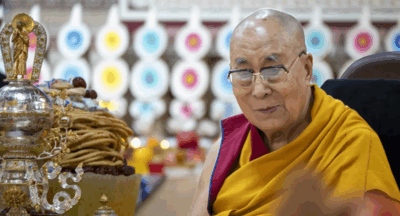Nearly two years after the Supreme Court declared triple talaq or talaq-e-biddat as unconstitutional, Parliament has passed the Muslim Women (Protection of Rights on Marriage) Bill, criminalising the obnoxious practice and, thus, made history. In its nearly year-and-half long sojourn in Parliament, searching questions have been asked of the Bill’s provisions. The legislation passed by the Rajya Sabha is somewhat different from the one introduced in the Lok Sabha in December, 2017.
The question, however, is: Has the government allayed all the major apprehension about the Bill? Last year, it did introduce amendment to dilute the Bill’s most contentious section—the criminality provision. “An offensive punishable under this act shall be cognizable, if information relating to the commission of the offence is given to an officer in charge of police station by the married women upon whom talaq is pronounced or any person related to her by blood or marriage”, reads clause 7 of the Bill— a climb down from the original clause, which allowed anyone to file a complaint.
Yet the question remains: Why deem what is essentially a civil wrong as a criminal act? The government has failed to give a convincing response to the Opposition’s criticism that a three-year prison term for a husband who pronounces triple talaq would end up doing the estranged wife more harm than good.
Opposition, particularly the Congress, has stated that they are not opposed to the abolition of triple talaq(in any case held unconstitutional by the Supreme Court of India in August 2017) but strongly opposed to the three-year imprisonment to husband who has committed the offence. Who will look after the family if the husband (bread winner) is sent to prison for three years? It argued that one way out could be that government takes up the responsibility of financially supporting all such women whose husbands are in jail for pronouncing triple talaq. However, the Government did not agree to this proposal.
Mohammed Arif Khan, a Minister in the Rajiv Gandhi government, vehemently pleaded for retention of punishable clause. In a bid to convince some Congress members that the clause envisaging “imprisonment for a term which may not exceed three years” was necessary to discourage the practice of talaq-e-biddat, he pointed out that unless there is fear of stringent punishment, no law can be enforced. Same was the case with Triple Talaq.
Arif had become a hero of the oppressed Muslim women in what was commonly known as the Shah Bano case in 1986. It was a controversial maintenance lawsuit in which the Supreme Court delivered judgment favouring that maintenance be given to an aggrieved divorced Muslim woman by her estranged husband. The then Congress government, headed by Rajiv Gandhi, gave in to the pressure of Muslim orthodoxy and enacted a law with its most controversial aspect being the right to maintenance for the period of iddat (after the divorce). It shifted the onus of maintaining a divorced Muslim woman to her relatives or Wakf Board. It was seen as discriminatory as it denied the right to basic maintenance available to non-Muslim women under secular law.
Arif resigned from his position of Minister of State protesting against Rajiv Gandhi government’s stand on Shah Bano case in 1986.
It is a matter of regret that when every Muslim country has legally abolished triple talaq, in India Muslim Person Law Board defended this shameful practice. Muslim countries which abolished triple talaq include Bangladesh and even the fanatically Islamic Pakistan.
Parliament marked a historic moment when the Rajya Sabha passed the much-debated and politically contentious triple talaq bill. With this, an archaic and medieval practice has finally been consigned to the dustbin of history. Parliament corrected a historic wrong done to Muslim women. “India rejoices today these parties and MPs have risen to the occasion and this step of theirs will forever be remembered in India’s history”, says Prime Minister Narendra Modi. (IPA Service)


